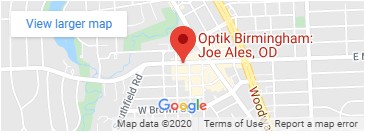
Understanding Myopia:
Myopia occurs when the eyeball grows too long or the cornea is too curved, causing light rays to focus in front of the retina instead of directly on it. This results in blurred distance vision while nearby objects remain clear. While genetics play a significant role in the development of myopia, environmental factors such as excessive near-work and limited outdoor exposure can also contribute to its progression.
The Importance of Myopia Management:
Unchecked myopia can lead to several vision-threatening complications, including retinal detachment, glaucoma, and myopic maculopathy. Additionally, higher degrees of myopia are associated with an increased risk of vision loss and other ocular health issues later in life. By implementing proactive myopia management strategies, individuals can reduce the likelihood of these complications and maintain clearer vision throughout their lives.
Effective Myopia Management Strategies:
Orthokeratology (Ortho-K):
Ortho-K involves wearing specially designed rigid contact lenses overnight to reshape the cornea and temporarily correct myopia. This non-invasive approach can slow the progression of myopia in children and adolescents while providing clear vision during the day without the need for glasses or contacts.
Soft Multifocal Contact Lenses:
Soft multifocal contact lenses are designed with different zones to correct both distance and near vision. Studies have shown that wearing multifocal contact lenses can slow the progression of myopia in children by controlling the elongation of the eyeball.
Atropine Eye Drops:
Low-dose atropine eye drops have emerged as a promising treatment for myopia control. By dilating the pupil and temporarily relaxing the focusing muscles of the eye, atropine can slow the progression of myopia and reduce the risk of associated complications.
Lifestyle Modifications:
Encouraging outdoor activities and limiting screen time and near work can help reduce the progression of myopia in children. Spending time outdoors exposes the eyes to natural sunlight, which has been shown to have a protective effect against myopia development.
Regular Eye Exams:
Routine eye exams are essential for monitoring changes in vision and assessing the effectiveness of myopia management strategies. An eye care professional can recommend personalized treatment options based on individual needs and lifestyle factors.
We’re committed to providing comprehensive myopia management solutions tailored to each patient’s unique needs. Whether you’re a parent concerned about your child’s vision or an adult seeking to maintain clear vision and eye health, our team of experienced eye care professionals is here to help you achieve your vision goals.
Take the first step toward clearer vision and healthier eyes by scheduling a comprehensive eye exam with Optik Birmingham today. Together, we can embark on a journey toward a better vision and a brighter future.
Do you have experience with myopia management techniques? Share your thoughts and insights with us in the comments below. Let’s continue the conversation and raise awareness about the importance of proactive myopia management for lifelong eye health and clear vision.


